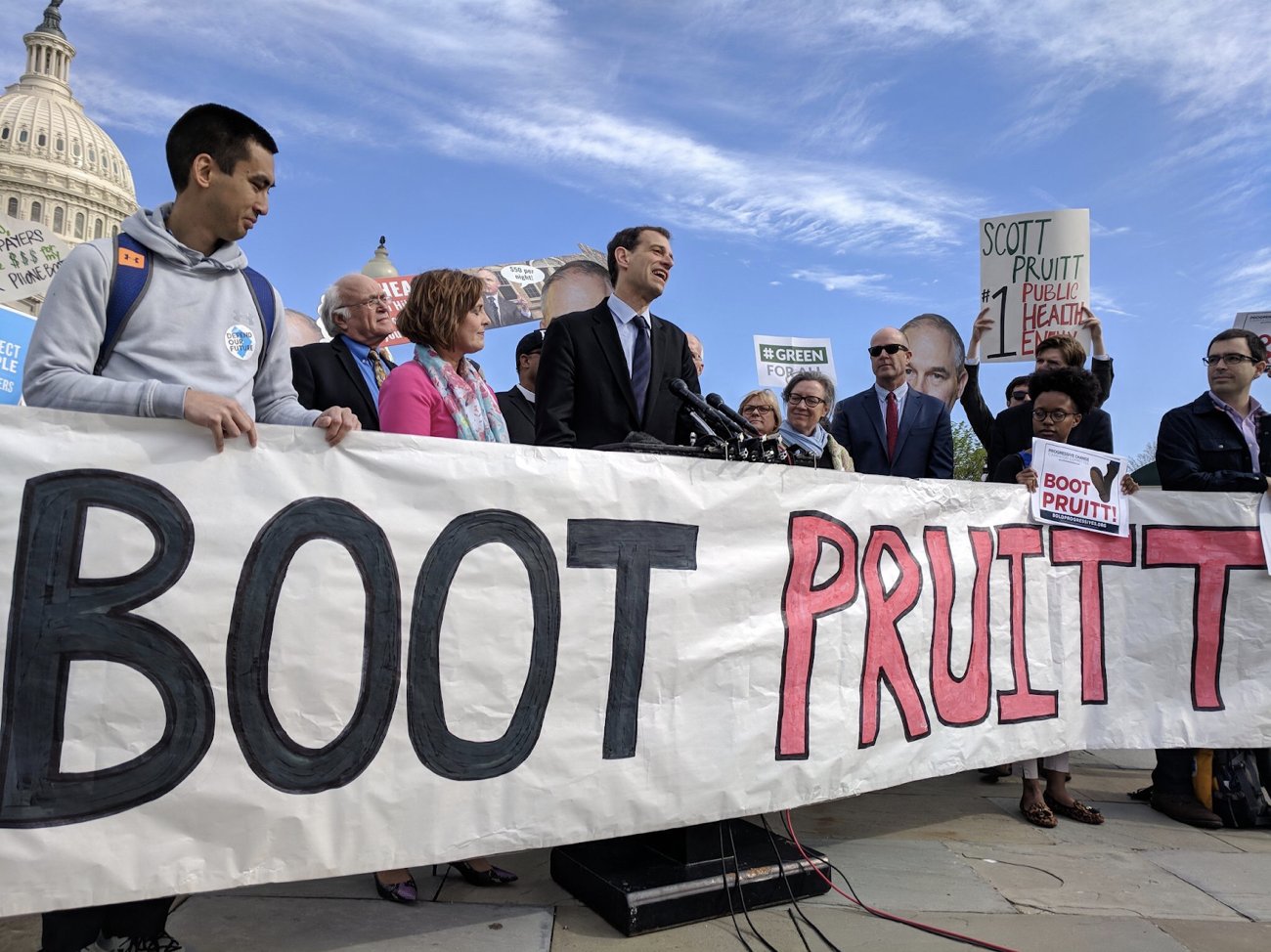2018 Year in Review: Government and Financial Reform

Donald Trump – and, by extension, those in his orbit – has brought a new, combative style of governing to the White House that thrives on chaos, flouts the law, evinces a fundamental disregard for ethics and facts, and has tested our system of checks and balances. But an energized, engaged resistance movement has risen, and Public Citizen is at the forefront.
In 2018 alone, we filed dozens of ethics complaints, conducted insightful research on Trump’s business dealings and highlighted for media and the public the myriad conflicts of interest of Trump and top administration officials. Our efforts – along with intense media scrutiny – helped pave the way for two administration officials to resign.
One of those was U.S. Environmental Protection Agency (EPA) Administrator Scott Pruitt, who used federal funds for first class, business class and private aircraft. Public Citizen called for Pruitt to reimburse taxpayers for any improper travel. After news broke in March that Pruitt was renting an apartment from an industry lobbyist, Public Citizen called for Pruitt’s impeachment. Pruitt resigned in July.
Another official to leave in disgrace was U.S. Interior Secretary Ryan Zinke, who took part in a multimillion-dollar business project arranged and funded by the chairman of the oil giant Halliburton. The project was a potential windfall for Zinke’s family and a foundation he started. In June, we called for an ethics investigation. In December, Zinke resigned.
We also remained vigilant for conflicts of interest posed by administration officials who had been corporate lobbyists. Through an open records request, we showed that corporate lawyer Andrew Smith, who now leads the U.S. Federal Trade Commission’s Bureau of Consumer Protection, will have to recuse himself from matters involving 120 companies, including Equifax and Facebook.
And immediately after Trump delivered the 2018 State of the Union address, we filed an ethics complaint alleging that U.S. House of Representatives Speaker Paul Ryan violated rules by allowing the Trump campaign to use the live broadcast of his address for fundraising; new donors were encouraged to make a contribution in exchange for having their names listed in a crawl at the bottom of the .
We also in May called on the U.S. Department of Justice, the U.S. Senate and the House to investigate whether Michael Cohen, Trump’s personal attorney, violated federal ethics and lobbying laws by signing consulting agreements with companies that had business before the administration. In December, Cohen was sentenced to prison for tax violations, lying and other charges.
In 2018, we saw results in a matter we flagged for investigators in 2017. In that year, we called for an investigation into the stock trading activity of U.S. Rep. Chris Collins (R-N.Y.). In the summer of 2018, Collins was indicted on charges of insider trading. Collins allegedly gave his son confidential information about a clinical drug trial so that his son could sell his shares in a biomedical firm – on whose board Collins sat – before the news about the trial became public. Public Citizen has consulted with lawmakers about the need to prohibit lawmakers from sitting on corporate boards of directors.
- Throughout 2018, Public Citizen sounded the alarm about the war on regulation waged by the Trump administration and conservatives in Congress. We organized a June event at which U.S. Sen. Elizabeth Warren (D-Mass.) delivered a national address about the threat to public protections in the Trump era. We also disseminated information throughout the year
- Public Citizen worked with lawmakers to better protect the congressional workforce from discrimination and harassment, and hold lawmakers personally liable for claims of harassment against them. Congress passed stronger protections in December.
- In late April, after we and other groups urged popular music producer DJ Khaled to stop posting paid endorsements for alcohol on social media, Khaled complied. He also edited his previous posts to disclose paid endorsements and since then has not posted any advertisements for alcohol. This came as part of our campaign to curb commercialism that targets children.
- After a NASA administrator pitched plans in September to explore selling corporate naming rights to rockets, we launched a campaign to stop it.